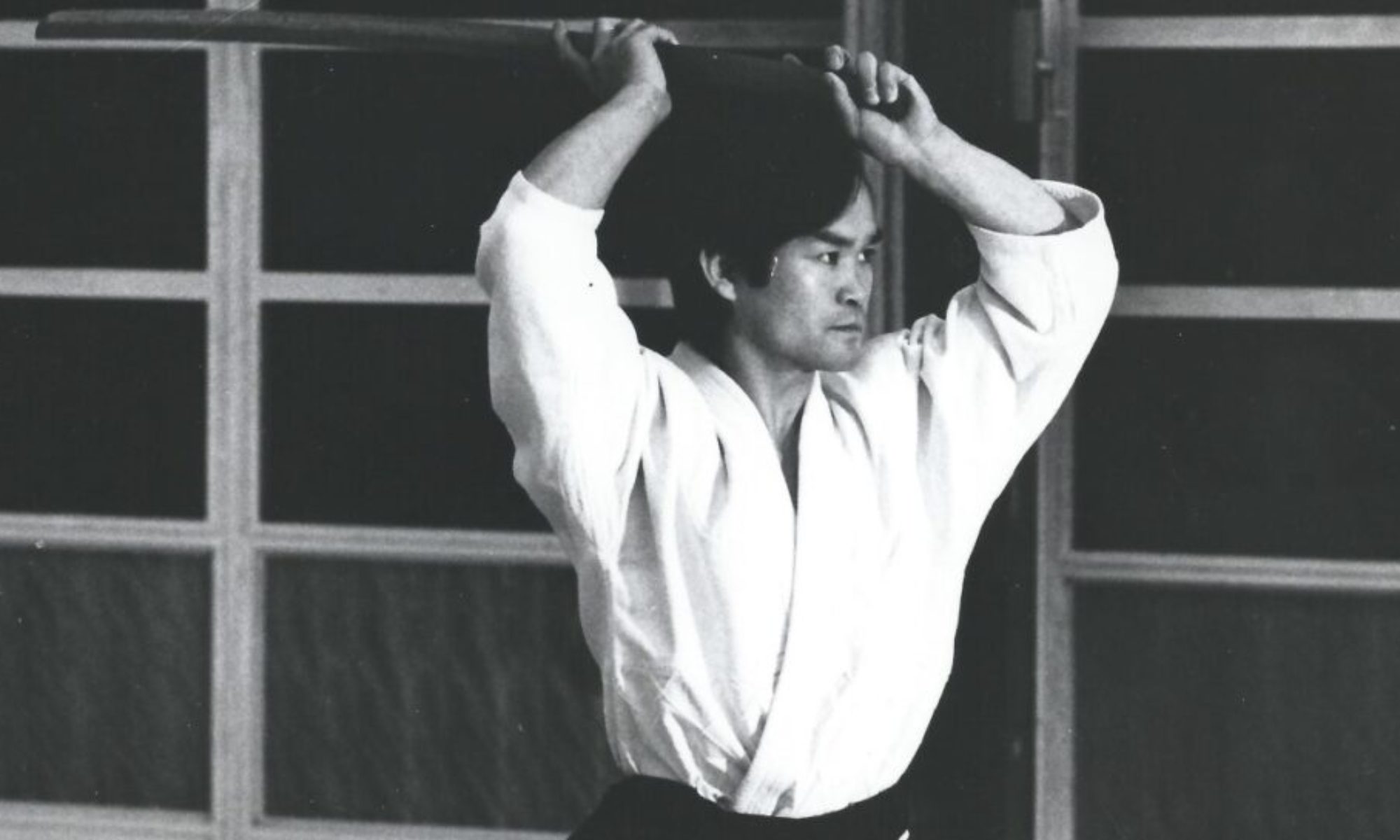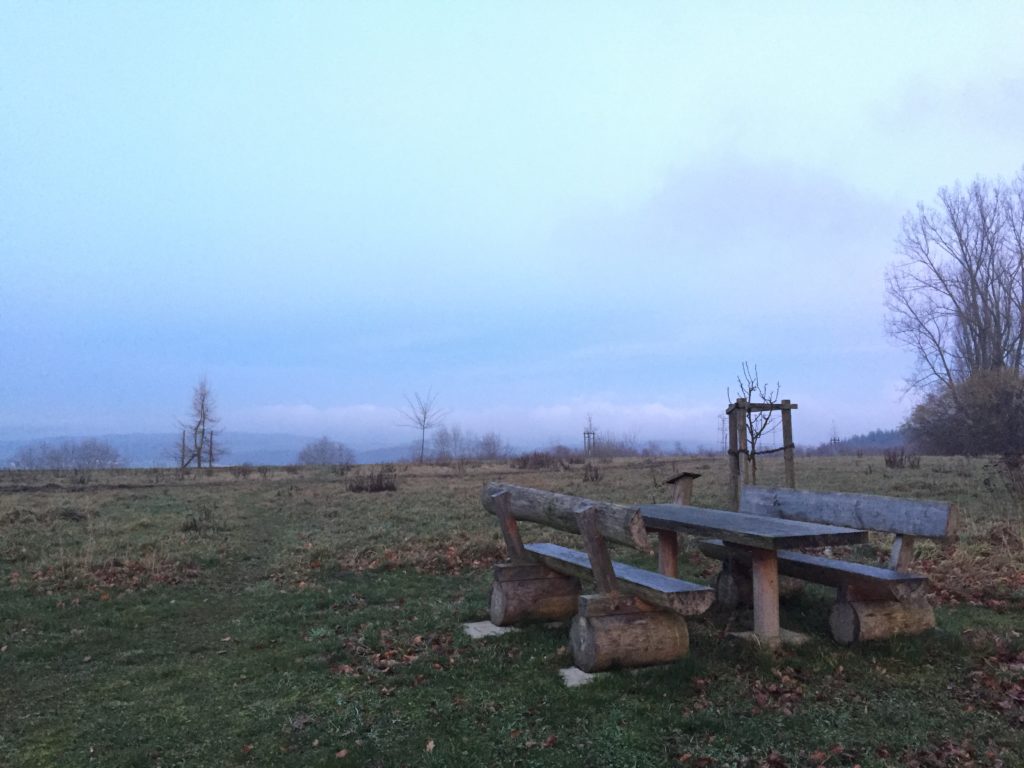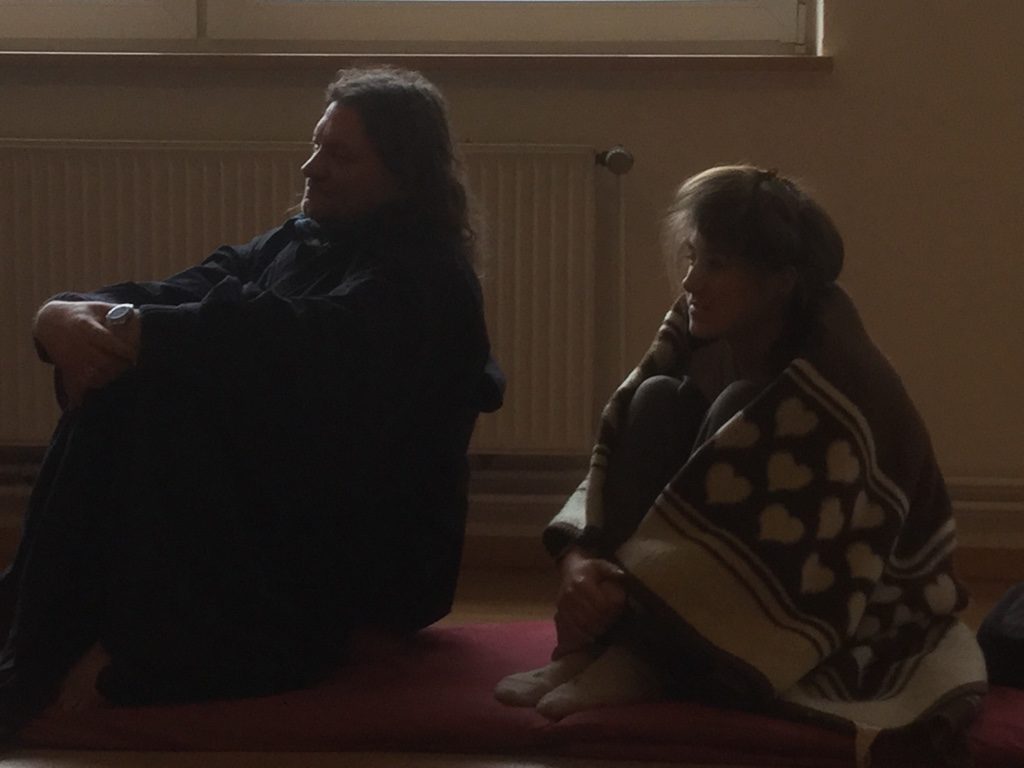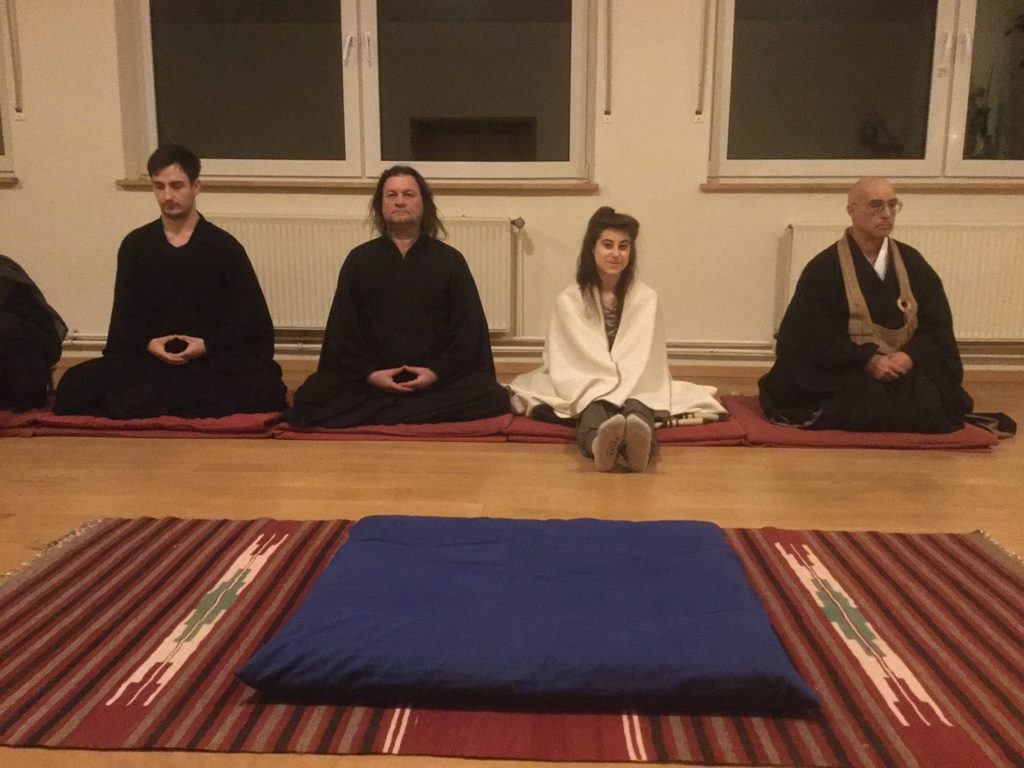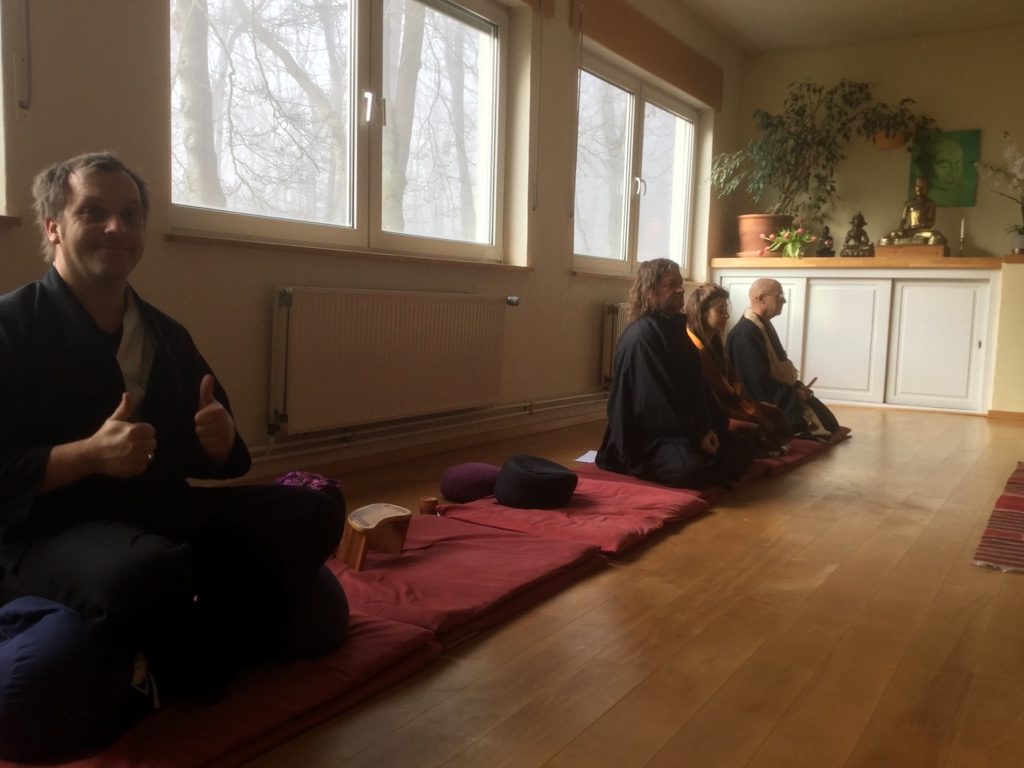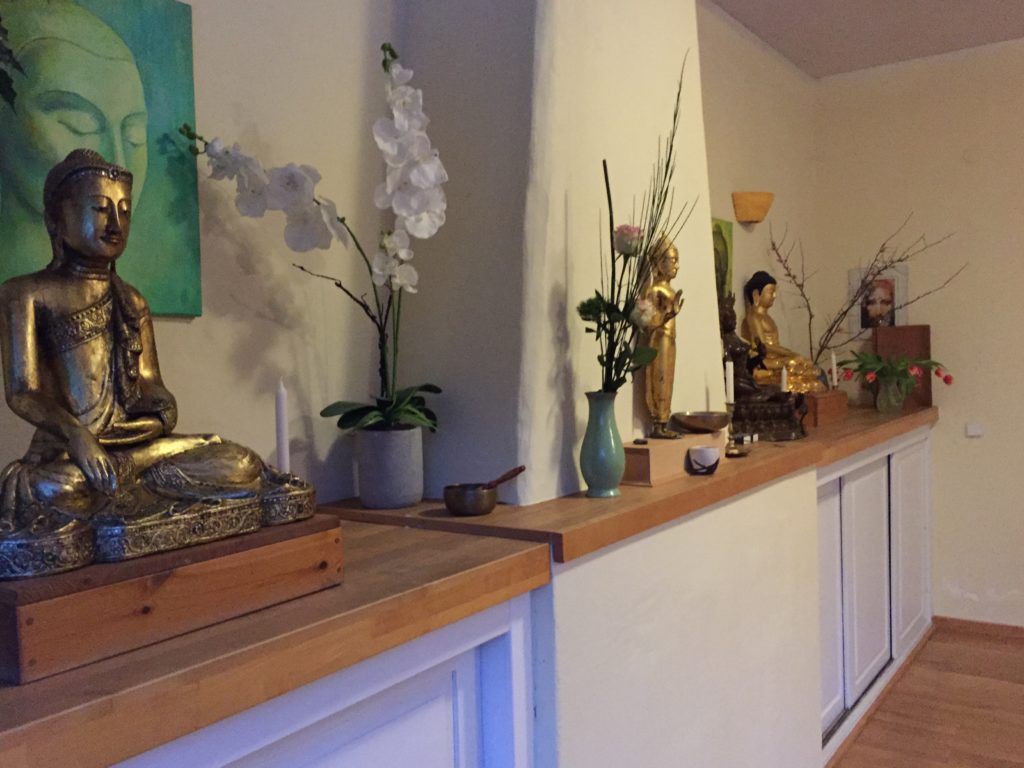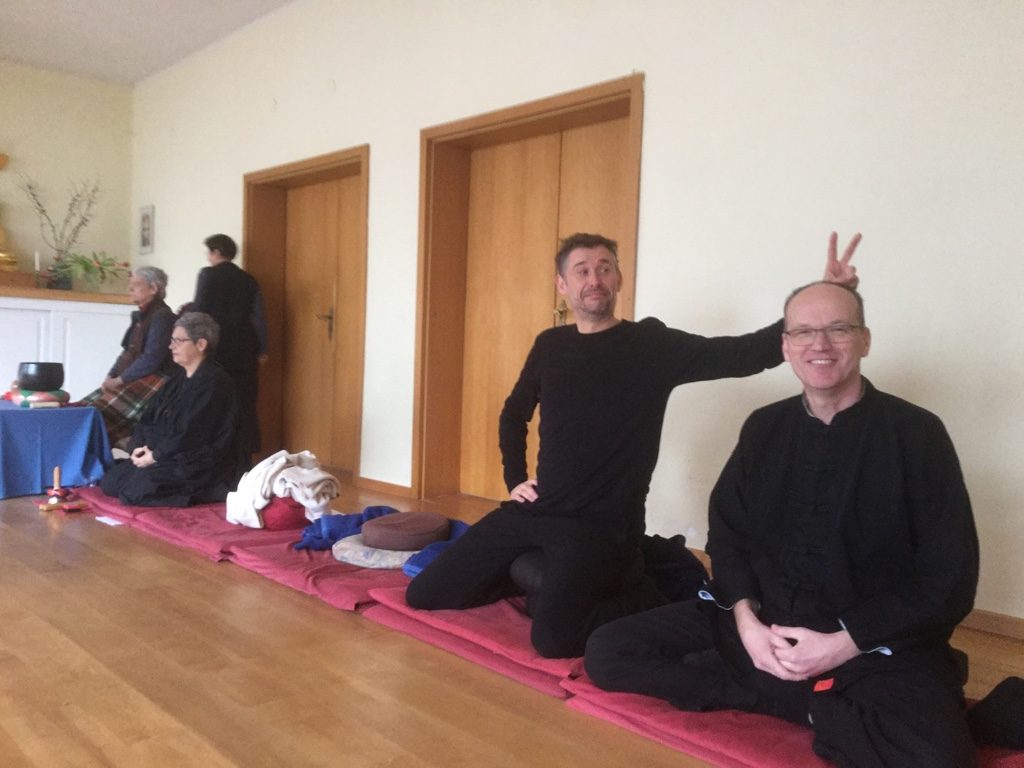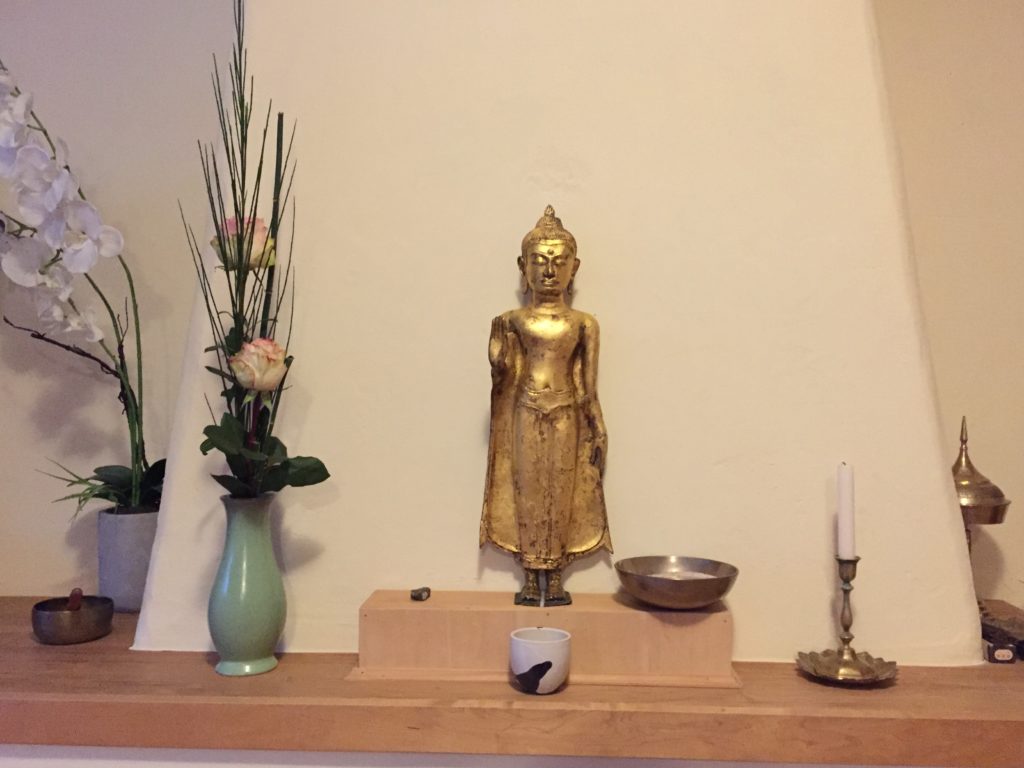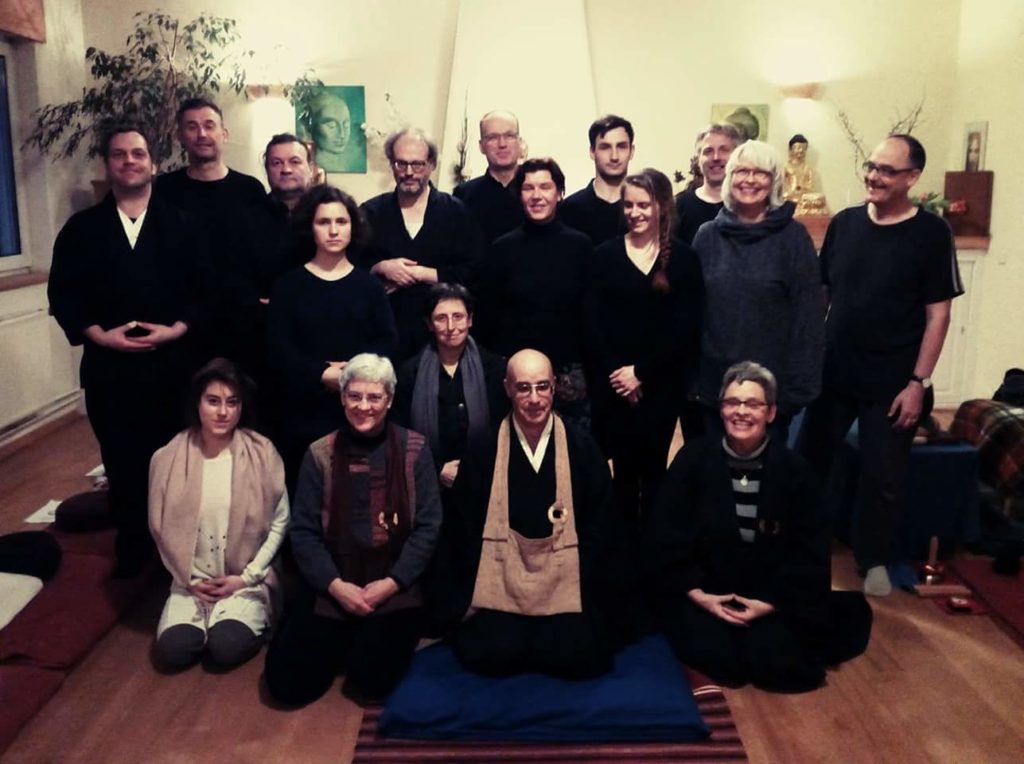By Alexander V. Gheorghiu, Ei Mei Kan
Reader, please stop. Stop thinking about this piece, how strange the story that follows is, or how good or bad this experience may have been. It is not what you think, it couldn’t be, as I will try to make clear.
I went to Sesshin, a five-day boot camp of zazen, and I cannot tell you that story. I resented this platitude when Mooney Sensei gave it to me, but now I understand why he did, and I remain eternally grateful to him. However, I will describe something of my journey. Not so that you may understand what Sesshin is like (I already said that I cannot tell you that story), indeed this article is not even for you, and it is not for me.
At the end of September 2017, I completed a one-month uchi deshi program at Ei Mei Kan, with the final week in an intensive seminar. After a busy, and hard summer, the day I finally left the dojo I had a long conversation with Sensei about everything I had been through in the preceding period – intercontinental travelling, three summer school in one month, being uchi deshi, the intensive seminar etc. At the end I found myself saying that I wanted to go on Sesshin. Sensei barely responded, he took a deep pause and then said simply ‘Look for Genjo.’ What on earth is a Genjo?
From this to boarding the airplane out of Birmingham International Airport, the only other remarks I received was that it would be the hardest thing I ever did… actually, there was one magnificent piece of advice which I now whole heatedly pass on to you: whenever in doubt, just bow.

On the 21st of February 2018 I landed in Bonn, Germany, with two names in mind: Monika and Genjo. Out of the airport I took a taxi towards the city, the driver was an active supporter of Golden Dawn, the nationalist fascist party of Greece. He was in his 50s and lived his whole life as an immigrant in Germany, but somehow had the Greek air about him. If not the irony of his immigration status, I found him entertaining in the way he declared everything ‘Unbelievable!’ in that way only southern Europeans can. It was already dark outside.
In the city I found the restaurant Monika had emailed me, a Pizza place called ‘Amigo’ – let me observe here that ‘Amigo’ is Spanish, not Italian, but I digress. I loitered outside it not knowing how I would find which table the party was on. The waiters did not recognise my request for ‘Monika’. After fifteen minutes I saw three people coming up the narrow street toward the restaurant, at least one voice was American – Genjo is an American. They entered, and I saw through the window that the man was wearing all blue, and he was bald. Genjo is a monk – monks are bald. I took this as my que to enter.
We had a nice meal, it was quite ordinary, except it was largely in German, with a monk, and everyone there was connected through the hobby of sitting in cold rooms on little cushions. The next day we had council, I will tell you nothing about this, but that it was serene and mindful. After that we made our journey roughly sixty miles out, past the arteriosus Rhine, into the country, up a high hill, where, on the misty plateau, there sits a building by the name of Waldhaus am Laacher.
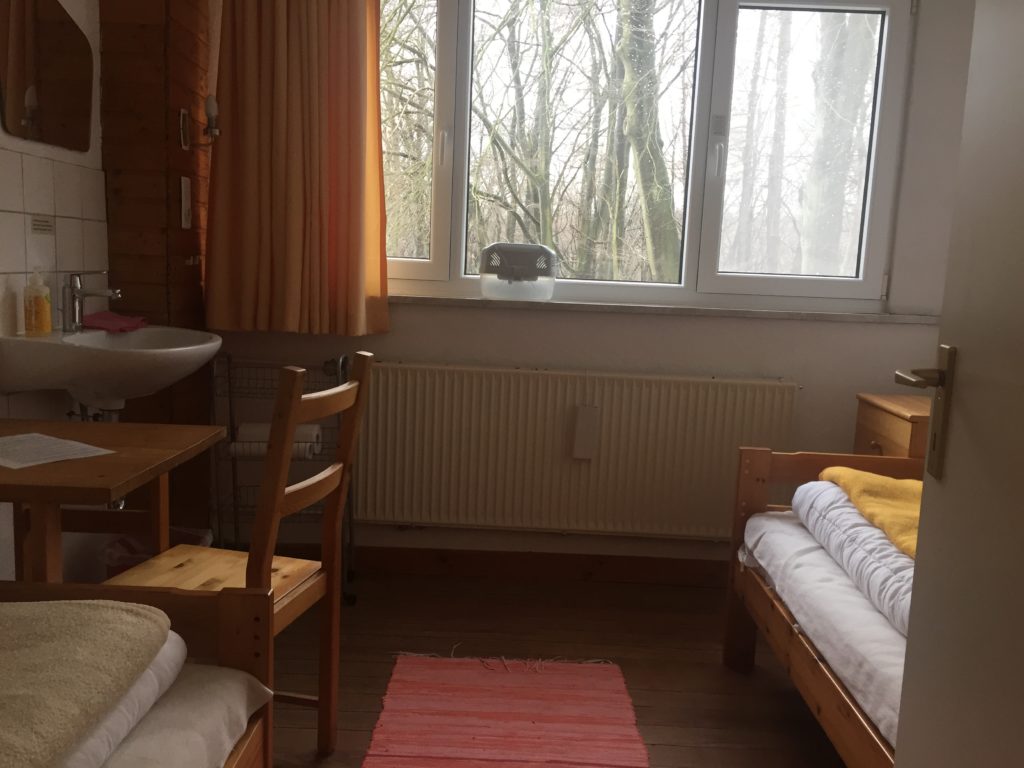
We got rooms, we got assignments – I was on the breakfast shift with a distractingly beautiful girl by the name of Marieke… so much for mindful work. We held a council, this is to sitting in a circle with a talking stick, as zazen is to sitting in rows in silence.
The noble silence began, we were not to talk unless necessary, which remained undefined, hence the use of the word ‘noble.’ The silence can press you, and subsequently hold you steady, but at first it serves to emphasise the fact that we were there voluntarily – more precisely we were paying to be there – so any failure in this regard was failure to us and only to us.
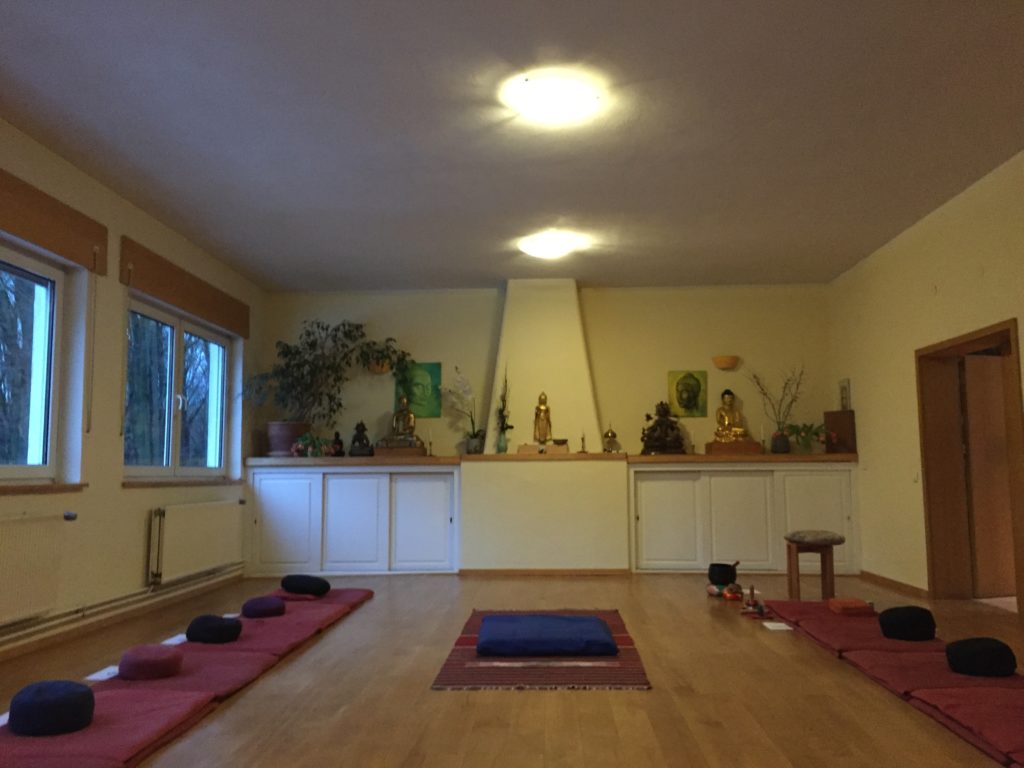
One might think that Genjo would be like a martial arts teacher where if the form is not carried out correctly, one ensues his wrath, or is encouraged to commit hara kiri. This might be the case at other Sesshins with more experienced sitters, I got the impression so, but I also found that he is entirely unirascible.
The time was 20:30 when we began our first sit of the week, this one being laden with instruction on posture, form, and habits. It dawned on me that doing nothing is not quite the same as not doing anything, but there is no apparent way to explain the difference. We were instructed on how to enter and exit the zendo, kinhin (walking meditation), tea-ceremony etiquette, dinner table etiquette, dokusan (interview), and sampai (prostration). An hour later we chanted the closing sutras and went to bed. Set your alarms for 05:00.
I invariable woke up at 01:00 with the palpitating fear of being late, this feeling enhanced by the echo of bells, clappers, and gongs from the back of my mind. Reflecting I suppose the reason for this state was two-fold. Firstly, I would be mortified to walk in on everyone else sitting, having me with my leaden footsteps disturb the peace of thirteen strangers. Secondly, I was wearing Mooney Sensei’s black zen robes, it was well known that I was his student, and I could not bear the thought of letting him down in such a fashion. I did usually manage to get another couple of hours in before the actual wake up time.
We were not scheduled to start the day until 06:00, but being of the inflexible kind, and finding the transition between sleep and awake a difficult one at the best of times, I required some time to stretch. Further, if I was there to sit, then sit I would – thus half an hour before the start I would be on my cushion practicing yaza (voluntary sitting). At 01:00 the zendo had been empty, but at 05:30 Geno Oshu was already meditating. Often Monika would also be there.
There are five times a day one could practice yaza: morning, breakfast, lunch, dinner, and night. The middle three depended on your samu, for example breakfast would not have been possible for me as I would be washing dishes. During both lunch and dinner, I had to stretch my leg. So, it remains to choose between morning and night, the obvious choice for me was morning because it was much much harder.
No pain, no gain. – Jane Fonda
We sit seiza, the Jisha’s claps pierce the door from outside and the jikijitsu responds with the solitary ringing of a bell – gassho, bow, retrieve the cups and napkins, place them neatly in front. The tea servers enter the zendo, holding the tea above their heads, they stand before the kamiza and bow, then turn and make their way along each tan. As they approach bow again and hold the cup up in pairs, receive the elixir, and raise the other hand to indicate enough. After they pass put the cup back down. The Jisha exit, they return to their own zafus. The jikijitsu rings the bell – bow – now drink.
First time, the tea is plain, like any other tea, not boring but somehow uninteresting nonetheless. Last time? Nectar.
One common criticism of zen is its formality, from the way you sit, and walk, to the way you drink tea, and breath, everything has a form. This form is rarely explained, often nuanced to the finest resolution, and vastly complex with many caveats and sub caveats on top of the share volume of different times it applies. Some enjoy the rules, and when one gets them right the experience is quite smooth, so why not have rules, but simpler ones? It is their complexity which makes them so valuable. Etiquette is principally about mindfulness. Consider a time when you were out having drinks with some friends, probably you made toast declaring ‘Cheers!’ to the group. What a strange thing to do! This action only serves one purpose, it is fundamentally about taking care to acknowledge the situation out-rightly – completely analogous to tea-ceremony, you even drink in unison. Some European cultures have even further complex rules about this interaction – they say you must look someone in the eye or you will have seven years bad sex, for example. Well, make a mental note about the quality and dedication these people have towards drinks, and how strictly they observe such rules. They follow the form. So, the bell doesn’t magically make the tea special, you do, by taking care to wait, and listen, and feel.
A rose by any other name, would smell just as sweet – William Shakespear
Let’s talk about pain. It has always been clear to those with even the tinniest experience with the body that people experience pain differently, and to different degrees. This usually refers to physical pain, though it does also apply to his twisted twin sister, pain of the mind, and their monstrous relation, pain of the soul. During Sesshin I came to know something of all of these – that it is illusory to distinguish them, and that they are like a weed with a single root – craving. There is something to be said for neurons firing during physical harm, but here we refer to the experience of pain, which only does exist in the mind.
At first I began to distinguish between discomfort and pain, concluding that discomfort made you yearn to move, whereas pain made you yearn for the bell to ring thus ending the sit. I broke this definition when I felt as though my body abandoned me, when the white pain started. This is quite unlike any other pain; at first it effectively numbs your other senses and is perhaps best described as a silent electric storm inside the brain. Then, everything disappears. You don’t become blind, or hallucinate, indeed your vision works fine, but you don’t take anything in. No world of sight. There is nothing but the silence and the still pain. I knew my right knee existed, but it was shapeless, had no distinguishing features other than being the source of this highest pitch of anguish. I did not want to move, I did not care if the bell rang, I was rooted to my existence, and my existence was pain.
At certain moments, and it impossible for me to measure the time of any of this, the white would become colourful again, and what a relief that was! Yes, it was terrible, but compared to the horrors of the white pain? Nothing. In these intervals I would yearn to move and for the bell to ring,.I screamed mutedly “Ring the bell, RING THE BELL!” I would beg and cajole, scared more than anything that the world would disappear again. Yet I did not move during this event. I must admit that I did at others comparatively lesser moments, but here I silently intoned the mantra ‘Sensei never moved.’ Reflecting on a story where Mooney Sensei had sat in such pain that he eventually fainted… his hip dislocated. Only later did I learn that this was at a Sesshin with Genjo.
“Tell me one last ting,” said Harry. “Is this real? Or has this been happening inside my head?”
“Of course it is happening inside your head, Harry, but why on Earth should that mean that it is not real?”
– The Deathly Hallows, J.K. Rowling
Eventually the sit did finish, but even then, I found it difficult to move. Once your whole being has committed to an action, in this case an inaction, it is quite overwhelming to return to a normal. However, it was breakfast time and part of the form is eating together so I did get up. Even now I find it emotionally difficult to speak about the sensation that followed: euphoria. It was good to be alive! I cannot possibly understate the ungodly white pain, but I can say that this giddy euphoria was worth it, such was its holy wonder.
The bell would ring outside the zendo calling us to the food. We exited in pairs, and in the dining hall collected our bowls. It was all vegetarian, largely vegan, and every meal had brown rice – including breakfast which was a vegan brown rice porridge. We put our bowls and plates down around the table, and, once everyone was ready, we bowed and sat. There were some chants and then we ate, in silence.
Like the tea, on the first day the food was bland, not bad, but extremely boring. It will come as no surprise when I tell you that by the end of week the food was ambrosia. After a particularly bad sit I took some bread with my meal, and once we started eating I was stunned by the share texture, weight, and smell as I held this humble slice in my hand. This is to give you no idea of the effect the flavour had on me! I forgot to eat for many minutes just to experience this slice.
Sometimes it is just the salt in the soup keeping you alive. – Daniel Speicher (in Council)
After each meal we had samu, which one can think of as chores. The difference is that with doing hours of meditation, eating in silence, and holding the zen atmosphere renders these chores into mindful activities. I was washing dishes – each dish is unique, each needs focus and precision to be cleaned, dried, and returned… it sounds strange reading this back, but those were my thoughts during the practice. While I was washing them, more were brought in a endless stream from the people preparing the food for the next meal. It slowly felt like a metaphor for zazen – as you begin to clean one part of your being, simply more, and more varied, parts are discovered and need cleaning.
After I had finished my samu, and in other break periods where I did not have any chores, I found it difficult to relax. It was as though Sensei was standing right behind me, and I felt it was wrong to just sit in a chair or just pass the time. Consequently, I would find things to do, such as dust the zendo, sweep the floor, exchange the tea set for clean ones, and so on until the next sit. It might be coming from the experience of living in a dojo, but internally I could feel Sensei’s disapproval at idleness when there were still things to be done.
I had dokusan with Genjo – conversations. At first, I thought that he would be full of clichés, yet it turned out I was the guilty party. For example, after a teisho [Blue Cliff Record – Case 1] I wanted to discuss my understanding, he let me say my bit and then summarised it as “…so a ‘you can’t step in the same river twice kind of thing’?” Oh dear, that is exactly what I meant.
Whilst sitting the objective is to let go of thoughts, and feelings, and then simply experience the world around you. At the start of this article I asked you to stop, and I suspect that you failed. This is not a criticism, it is the reflection of me in you, I know all too well that being told, or trying, to stop doesn’t not always come with a large yield.
If thoughts are clouds, then a good sit is a warm summer’s day with an ocean of darling blue above your head. When a cloud eventually disturbs the scene, it is only a cloud so it will pass by itself to re-reveal the canvas – that is unless you get caught by it and track it around the sky. I had good sits like this where everything was still, and I could step away from myself and observe my instincts as from afar. In the immortal words from the first stanza of Emily Dickenson unpublished poem ‘I heard a fly buzz – when I died’ –
I heard a Fly buzz – when I died –
The Stillness in the Room
Was like the Stillness in the Air –
Between the Heaves of Storm –
– Emily Dickenson
For the whole week, my peace measured maybe a handful of hours; the rest was pain, exhaustion, and frustration – it was worth every second.
Approaching the sitting I would inevitable think about not thinking. I would say to my inner voices ‘Shut up!’ and they would reply ‘Don’t think!’ to which I would remark ‘That includes you!’ and they annoyingly observed ‘You’re not doing it…’ This could go on for quite a while. It dawned on me that you cannot stop a wave by shouting at it (there, another cliché), and so I did, after some time, simply stop. Deep inside a voice with no vowels commanded ‘Enough.’
The state I achieved is not an unconscious state, it is quite the opposite, everything is observed, everyone is felt. One time it was raining outside – pitter patter pitter patter pitter patter peter pater Peter Pater – How are you doing? Everything was funny, Peter Pater was the most amazing person! Hilarious really.
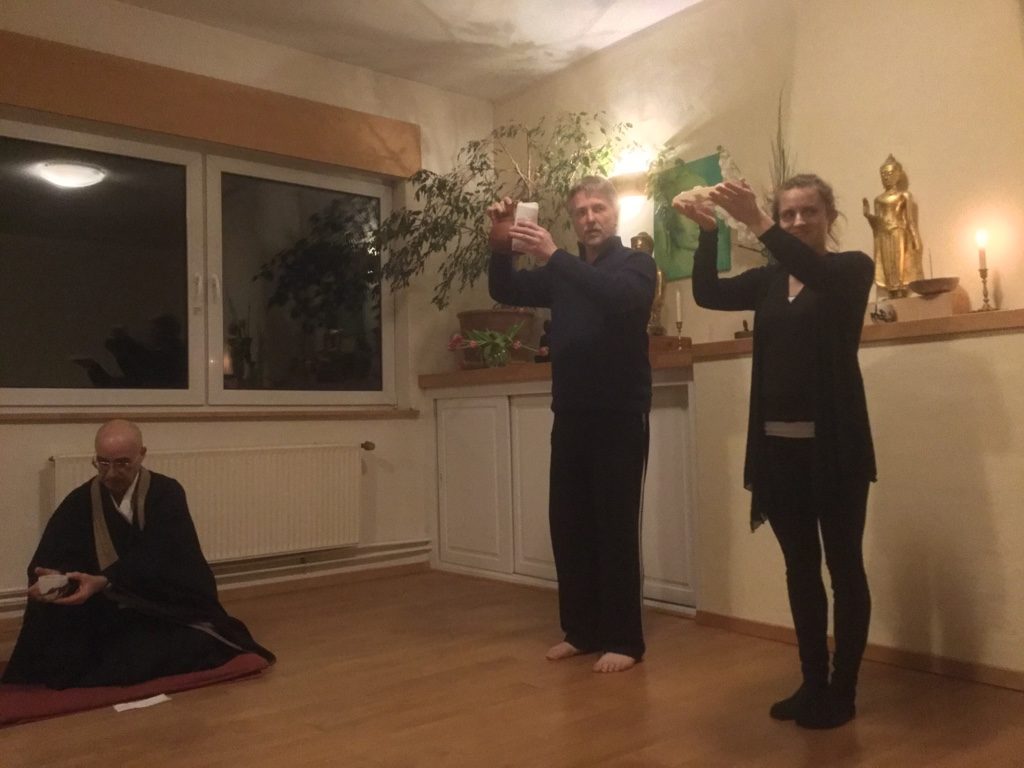
There was one more consequence of this state which was a great and bountiful love for all of existence. My heart broke for each person in the room, and then in Germany, and then on the planet. I thought a lot about Sensei at this time. I thought too about O-Sensei’s obsessive classification of Aikido as compassion and love, he was a genius. On the flight back I thought my heart would burst as I observed the people around me. The love came with a sharp sadness too, the anguish of the unrequited love.
In his dreams he was tormented by women of unbearable sweetness and beauty, so he preferred to stay awake and force himself to rehearse some part of his general knowledge in order to blot out the tragic feeling of being endowed with a larger-than-usual capacity for love, without a single person on earth to offer it to. – The Satanic Verses, Salman Rushdie
I made some notes during my time at the Sesshin, and reading them back I see more of what went on than I have perhaps made clear. Take this, for example, on a ten-by-ten-centimetre square slip I have simply written the words ‘Nothingness, nothingness, nothingness.’ This was my description of what I experienced after a particularly good sit, but the message is now opaque to me until I return to the cushion.
There is a edge to this state, which is when you are approaching it, but not quite there yet, your sensitivity is maximal. Consequently, in the statistical nightmare that is a room of fourteen people, someone will inevitably cough or sneeze. At the edge, an audible inhalation is like being washed over by a wave, these sharper sounds are like an earthquake.
After five days you are totally broken down. The constituents of the inhabitations you carry with you lay on the floor of your consciousness, you will rebuild them, but not now. However, day and night meditation takes another toll on you too, that is you can never unsee and unfeel what you have just experienced. I stood before the terrible dark pit, and with palpating breath I screamed ‘FALL!’ but I could not as my mind forged manacles yanked me back to cruel qualia of an impressionist world. I saw what liberation was like, but I was not ready to fall – I could not let go. Yet I now know that it is there, that one could concievably fall.
…plucked the imaginary flowers on the chain not in order that man shall continue to bear that chain without fantasy or consolation, but so that he shall throw off the chain and pluck the living flower. – Critique of Hegel’s Philosophy of Right (1843), Karl Marx
Now reader, you have no choice but to stop, because here is the end. When I returned to the United Kingdom, I went to see Sensei and we spoke. Of all the people I encountered, he never asked me how it was, because he knew that I cannot answer that question as I have just spent three and a half thousand words trying to tell you. It just was.
Gassho,
Alexander V. Gheorghiu.
